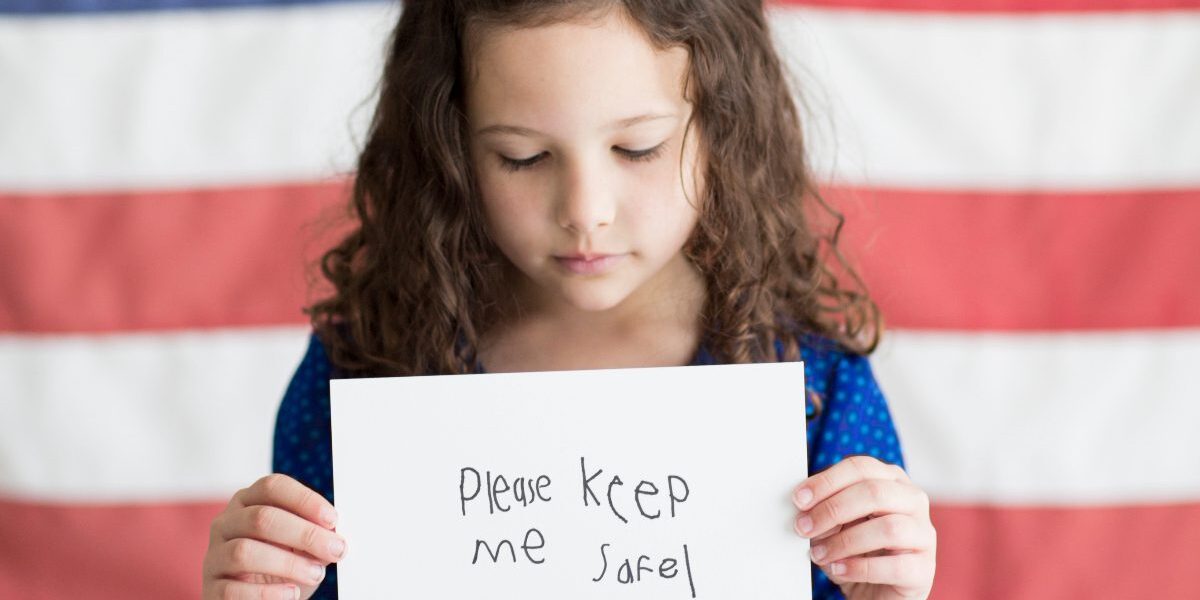
Confronting the Surge of Child Gun Deaths
Gun violence in the United States isn’t a new issue, but recent statistics reveal a deeply concerning trend: our children face an unprecedented threat. 2021 saw the highest number of gun deaths ever among U.S. children. This surge demands immediate action, both in prevention and in seeking justice for affected families.
Facing the Hard Truth
Children dying from firearms shatters families and impacts communities. Every number represents a life cut short, a future unfulfilled. Primary causes of child gun death in the United States include:
- Unintentional Shootings: Often, these tragedies happen when children find unsecured firearms in their homes or the homes of friends or relatives. Curiosity leads them to handle the gun, and without understanding the dangers, they unintentionally discharge the weapon, harming or killing themselves or others.
- Homicides: Sadly, many children fall victim to targeted violence, domestic disputes, or crossfire in community violence. Gang-related violence also contributes to the number of children killed by firearms.
- Suicides: An increasing concern is the number of adolescents and teens who use firearms to commit suicide. Easy access to a gun during a moment of crisis can turn a temporary feeling of despair into a tragic and permanent outcome.
- Domestic Violence Spillover: In situations where domestic violence is present, children can become unintended victims when a firearm is involved, either by being caught in the crossfire or by being intentionally harmed.
Why Should You Know and Understand Gun Laws
Whether or not you are a gun owner, it is important to know and understand gun laws for a variety of reasons, such as the following:
- Legal Compliance: Ignorance of the law is not a valid defense in legal situations. Understanding gun laws ensures that individuals remain compliant, avoiding potential legal consequences such as fines, imprisonment, or loss of firearm rights.
- Safety First: Many gun laws aim to promote safety. By being aware of these laws, individuals can reduce the risk of accidents, unauthorized access, and misuse of firearms, ensuring not only their safety but also the safety of those around them.
- Responsible Ownership: Knowledge of gun laws is a cornerstone of responsible firearm ownership. This encompasses understanding how to securely store firearms, where one can legally carry them, and the proper procedures for selling or transferring a gun.
- Informed Decision Making: Whether considering purchasing a firearm, storing one, or using it, understanding the applicable laws helps individuals make informed and legal decisions.
- Protection of Rights: For those who advocate for gun rights, understanding the laws is crucial. It allows them to engage in informed discussions, vote accordingly, and challenge regulations they deem unnecessary or overly restrictive.
- Civil Liability: In some jurisdictions, gun owners can face civil liability if someone gets injured or killed by use of their firearm, especially if it wasn’t securely stored. Knowledge of these laws can help gun owners take necessary precautions.
- Mental Preparedness: In situations where one might need to use a firearm for self-defense, understanding the legal ramifications and requirements can influence decisions in high-stress moments.
- Building Trust: Demonstrating knowledge and adherence to gun laws can foster trust within the community and with law enforcement, showcasing responsible and informed gun ownership.
- Interstate Considerations: For those traveling or moving between states or countries, gun laws can vary significantly. Being informed prevents unintentional legal violations.
- Public Discourse: Gun laws are often a topic of public debate. To engage in these discussions constructively, individuals need a solid understanding of existing regulations and their implications.
- Protection for Non-Owners: Even for those who don’t own guns, understanding the laws can be beneficial. It can inform decisions when visiting households with guns, guide actions if encountering a firearm unexpectedly, or aid in discussions about community safety.
Gun Laws Across the US
Gun laws in the United States vary significantly across states, reflecting the diverse views on gun rights and gun control held by the populace and legislators of each state. Here’s an overview of how gun laws can differ:
- Permit Requirements: Some states require residents to obtain a permit before purchasing any firearm, while others may only require permits for handguns or have no permit requirements at all.
- “Shall-issue” states grant concealed carry permits to applicants who meet legal requirements, while “may-issue” states give authorities more discretion, potentially considering the applicant’s need for a weapon.
- Background Checks: Federal law requires licensed dealers to conduct background checks, but private sales (like those between individuals) are exempt in many states. Some states have closed this “private sale loophole” by mandating background checks for all gun sales.
- Waiting Periods: Some states require a waiting period between the purchase of a firearm and its actual transfer to the buyer, allowing for a “cooling-off” period. The length and application (handguns vs. all firearms) can vary.
- Assault Weapons and Magazine Capacity: Some states have bans or restrictions on the sale and possession of assault-style weapons or high-capacity magazines.
- Open and Concealed Carry: Laws regarding carrying firearms in public vary widely. Some states allow open carry without a permit, while others require a permit or prohibit it entirely. Concealed carry laws also differ, with some states being more permissive and others more restrictive.
- Gun Storage and Child Access Prevention: Some states have laws that require gun owners to store their firearms in a way that prevents unauthorized or underage access.
- Red Flag Laws: These laws allow family members or law enforcement to petition a court to temporarily remove firearms from someone deemed a threat to themselves or others. The specifics of these laws, including who can petition and the duration of the order, vary by state.
- Preemption Laws: Some states have preemption laws that prevent local municipalities from enacting gun laws that are stricter than state law.
- Reporting Lost or Stolen Firearms: While some states mandate that gun owners report lost or stolen firearms, others do not.
- Age Restrictions: The minimum age to purchase firearms varies. Federal law sets the age at 18 for long guns and 21 for handguns, but states can impose stricter age limits.
- Domestic Violence and Guns: Some states have laws that prohibit an individual with domestic violence restraining orders or convictions from purchasing or possessing firearms.
- Mental Health: States have varying criteria concerning the prohibition of gun ownership for individuals with certain mental health conditions.
Gun Laws in Kansas and Missouri
Historically, Kansas and Missouri have favored gun rights. Here’s a breakdown of the gun laws in each state:
| Kansas | Missouri | |
| Permit Required | No permit is required to purchase rifles, shotguns, or handguns. | No permit is required to purchase rifles, shotguns or handguns. |
| Concealed Carry | Kansas is a “constitutional carry” state, meaning that no permit is required to carry a concealed firearm if you are over 21 years old and legally allowed to possess a firearm. However, Kansas still issues concealed carry licenses for those who want them, especially for reciprocity with other states. | Missouri is a “constitutional carry” state, allowing for concealed carry without a permit for those at least 19 years of age. Concealed Carry Weapon (CCW) permits are issued for reciprocity purposes. |
| Open Carry | Generally allowed without a permit. | Generally allowed, but localities can restrict open carry for those without a CCW permit. |
| Background Checks | While licensed dealers must conduct background checks, private sellers are not required to do so. | Licensed dealers are required to conduct background checks, but private sellers are not. |
| Gun Storage | Kansas does not have specific laws regarding the storage of firearms to prevent access by children. | Missouri does not have specific laws regarding the storage of firearms to prevent access by children. |
| Red Flag Laws | Kansas does not have a red flag law | Missouri does not have a red flag law. |
| Preemption | Local governments are generally prohibited from enacting ordinances, resolutions or regulations that govern the purchase, transfer, ownership, storage or transportation of firearms or ammunition. | Missouri law preempts local governments from enacting ordinances that would regulate the open carrying and shooting of firearms. |
| Others: | No other state restrictions on assault weapons, magazine capacity or waiting periods beyond federal law. | Missouri has a “Stand Your Ground” law which eliminates the duty to retreat from certain situations outside one’s home. There are no state restrictions on assault weapons, magazine capacity or waiting periods beyond federal law. |
Taking Proactive Steps
To combat this crisis, we must act decisively:
- Promote Safe Storage: Every gun owner should store firearms securely, using gun safes, lock boxes, and trigger locks, ensuring children can’t access them.
- Educate Relentlessly: Schools, community centers, and local organizations must champion gun safety, teaching both children and adults about responsible ownership and the inherent risks of firearms.
- Prioritize Mental Health: A significant portion of gun violence links back to untreated mental health issues. By offering accessible mental health resources, we address some of the root causes head-on.
The alarming rise in gun deaths among U.S. children underscores the need for action. While we push for policy reforms and preventive measures, families must also know their rights and legal options. Through awareness, decisive action, and holding wrongdoers accountable, we can work towards a safer future for our children
Seeking Justice for the Lost
The loss of a child to gun violence leaves a void that nothing can fill. While no compensation can replace a loved one, legal action can offer a sense of justice and closure. At Kendall Law Group LLC, we stand with families in their quest for justice. If negligence played a part in your child’s serious injury or death—be it due to lax security, a faulty firearm, or sheer recklessness—you might have a case for a personal injury or wrongful death lawsuit. Holding the responsible parties accountable not only brings justice for your family but can also deter future tragedies.
Kendall Law Group LLC: Your Advocates
For over two decades, Kendall Law Group LLC has stood by families and individuals reeling from personal injuries or the death of a loved one. Our team dives deep into the intricacies of wrongful death cases, offering both legal prowess and genuine compassion. If you’re grappling with the aftermath of a gun-related tragedy, we’re here to support and guide you. We offer free consultations to discuss your situation and potential legal paths. Contact us at (816) 531-3100.






